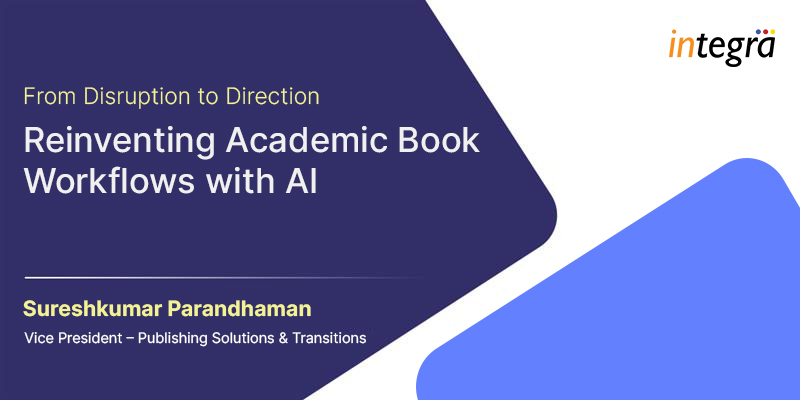5 Ways in which AI Can Revolutionize the Publishing Industry

The decade that went by has witnessed the spectacular rise of digital publishing, print-on-demand, and the independent author movement. To feed this explosive growth, several technologies and tools have been gaining traction. Artificial Intelligence (AI) is particularly promising in that it looks to be the next big disruptor in the publishing field.
Let’s take a closer look at how AI is going to create a strong impact on the publishing industry:
1. Reading into the Future: Predictive Analytics
By using complex algorithms and rigorous methods of current and historical data analysis to make predictions on the future of readers’ behavior, AI can automate data forecasts to a significant extent. By automating data forecasts, publishers can redefine their monetizing strategy in the most effective way. The New York Times, for instance, has had a successful foray in this regard by employing data science and machine learning (ML) to increase subscription-based revenue. OptiQly, a marketing technology and services startup, uses AI-powered tools to increase book discovery and sales at online retailers.
2. Doling out the Right Stuff: Content Personalization
This has long been discussed and is viewed as one of the most useful and sustainable benefits of AI for publishing. An AI-backed personalization via email makes it possible. How it works is simple: While a user interacts with digital content via a learning services portal or accesses content through a reading platform, an intelligent algorithm learns one’s behavior, defines preferences, and identifies pages and topics with the highest engagement rate. It then compiles a list of the most relevant content links with auto summaries to send out as a newsletter, exactly when the user is most likely to open and click through to read the content on the website.
3. Picking the Picture: Image Recognition and Auto-tagging
The publishing industry has long been seeking an optimal solution for image storage that would provide a faster and enhanced file search. As an extension to that, yet another challenge is manual image tagging. This requires a human to invest several hours of mundane work, introducing an element of human error. Given that image archives are hard to navigate, AI-powered tools may seem promising in this regard, especially when thought through in close conjunction with human labor.
4. Passing the Verdict: Content Evaluation
The manuscript approval process can be quite a stressful activity for an editor since it calls for a huge investment of time and effort from the editor’s end. With AI in the picture, the possibility of comparing an unpublished piece of work with a group of bestsellers of the publisher in the same genre is presented. This helps to identify their shared traits and evaluate whether or not the new book has the potential to engage readers.
5. Dealing with Management: Content Organization
AI can also help with efficiently managing and organizing content, which has traditionally been a serious issue due to the unstructured nature of video and audio data. All the recent advances in speech and emotion recognition, as well as computer vision, have empowered the most recent AI tools, which can now easily classify archives that were previously thought inaccessible. Not just that, AI brings to the learning services and education table a much-needed structure and orderliness. This is beyond vanilla content, rendering itself to a rather comprehensive learning experience.
All said and done, AI cannot – not now, nor in any currently foreseeable way – ever replace the real purpose of publishing or the human aspect of the business, which is to transmit ideas, stories, wisdom, and inspiration between humans. To a great extent, AI looks as if it can be a force that can augment human wisdom and knowledge.
Recent Blogs

From Disruption to Direction: Reinventing Academic Book Workflows with AI

From Disruption to Direction: AI Across the Ecosystem


